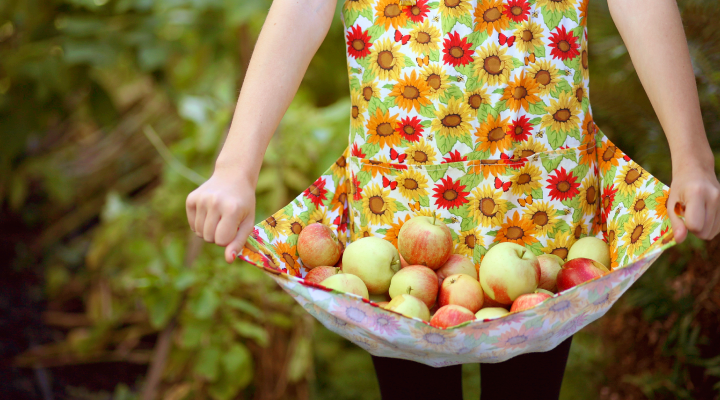The clock ticks down as you start to stick to the orthodontist chair. The office smells very sterile, but the calming music and imagery keep you relaxed. It’s finally the day your mouth is graced with braces!
The first conversation with your orthodontist will probably be something about properly caring for your teeth with this new, shiny addition. The second conversation will most likely be a discussion around the foods you can (but mostly can’t) eat. If you had to guess, where do you think eating apples with braces falls?
Many of the foods on your orthodontist’s “Do Not Eat” list are there because of their textures and hardness. The increased pressure needed to chew certain foods stresses your new hardware more than other, more malleable foods.
So, does that mean saying “sayonara” to the foods on your orthodontists’ untouchables list? It depends on the food.
Eating Apples with Braces – Biting versus Chewing
Eating a whole apple requires intense pressure from your four incisors. It’s a hard fruit that requires biting with your front teeth’s slicing power. Think of the amount of pressure eating a whole apple would place on your braces. Incisors alone have the force of 70 pounds! Assuming your braces are on your incisors, those front braces would take the brunt of this apple-biting pressure.
“There is a vast difference between chewing and biting.” Chewing food requires use of the back molars – like when eating a grape, for instance. Chewing, rather than biting, is more cooperative with braces. This is because the pressure when chewing is exerted between the bottom and top molars, rather than against the braces on your teeth.
Don’t worry, you’ll still be able to get your daily apple in. Having braces doesn’t necessarily mean you have to remove apples from your diet altogether.
How to Eat Apples with Braces
According to Dr. Thomas Redd, DDS, “We love patients that eat healthy, but some care is needed. Eating an apple whole utilizes a shearing motion on the front teeth (incisors) that can result in broken brackets. It’s always best to slice them prior to eating them.”
Slicing apples before eating them will remove the pressure from your incisors since the cutting has already been done. Take it one step further by chopping your apple slices. This creates more manageable pieces to eat one bite at a time.
Alternative Options for Eating Apples with Braces
After getting braces put on, or after getting them adjusted, your teeth will hurt. Unfortunately, this is part of the process of straightening them into place. Should your teeth be experiencing pain, but you can’t live without your apple fix, try some good old’ fashioned unsweetened apple sauce. It doesn’t require biting or chewing and would be the safest option for your braces.
Don’t forget to brush and floss! Smaller pieces of apple can still get lodged inside your braces.
*Sliced apple tip to prevent browning: Packing apples for lunch or mid-day snack? After slicing, dip sliced apples into a mixture of three-parts water and one-part lemon juice to prevent browning over the course of a day.
What Other Hard Fruits and Vegetables Can I Eat with Braces?
Any fruit or vegetable that crunches when you bite into it is not recommended when you have braces. As with apples, though, hard foods can be cut up into smaller, bite-sized pieces and eaten with braces! These include:
- Carrots
- Corn
- Radishes
- Celery
- And other harder fruits and vegetables.
As a rule of thumb, consult your orthodontist to establish a list of foods that should not be eaten with braces. After all, you want to keep your braces in the best shape possible so they can do their primary job! An apple a day won’t keep your orthodontist away, but bite-sized pieces can help.
To find a dental plan that offers orthodontic care and meets your needs, click here.

